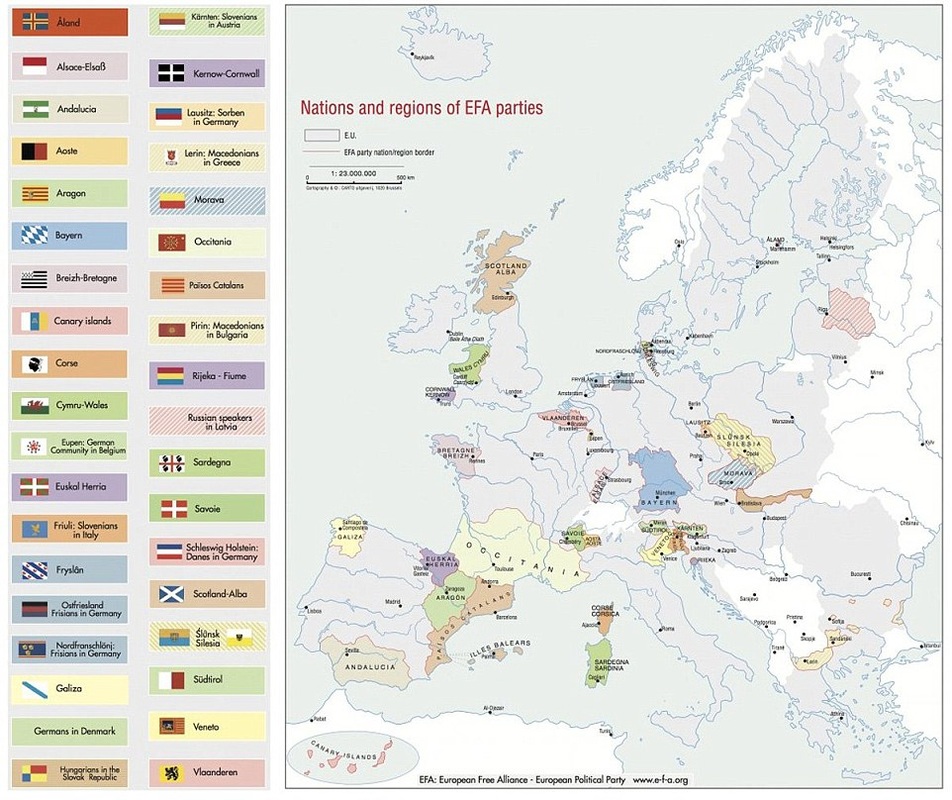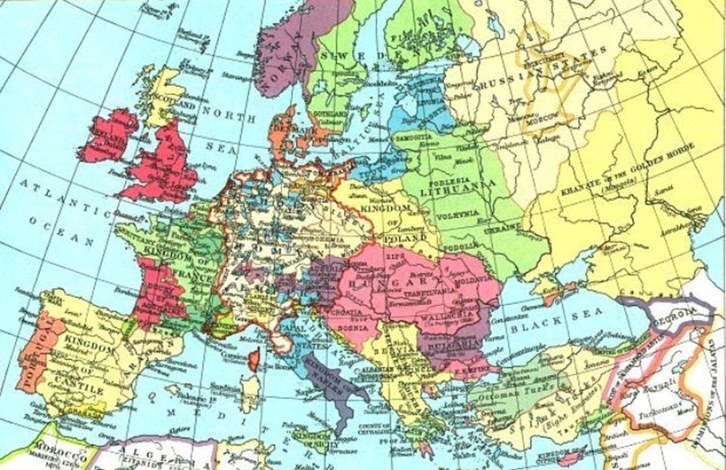For many complex reasons, a lot of Scots will vote “Yes” and a lot’ll vote “No” on secession tomorrow (Sept. 18th). (See previously: post-228, Scottish Independence, and post-229, Scotland’s Secession and Reminiscences of a Scottish Friend.)
I am led to step back from the passions of this particular secession crisis and think about the principle at hand.
Imagine that you support secession, in principle. “If a group of people within a specific region of a larger state wants independence, it is their sacred right to pursue and achieve it.” Something like that. (Or, more eloquently, “[I]n the Course of human events, it becomes necessary for one people to dissolve the political bands which have connected them with another, and to assume among the powers of the earth, the separate and equal station to which the Laws of Nature and of Nature’s God entitle them.”)
I am led to step back from the passions of this particular secession crisis and think about the principle at hand.
Imagine that you support secession, in principle. “If a group of people within a specific region of a larger state wants independence, it is their sacred right to pursue and achieve it.” Something like that. (Or, more eloquently, “[I]n the Course of human events, it becomes necessary for one people to dissolve the political bands which have connected them with another, and to assume among the powers of the earth, the separate and equal station to which the Laws of Nature and of Nature’s God entitle them.”)
It is tempting to support this principle. Americans honor the words of 1776, which seem to endorse it, 1861-65 notwithstanding. The problem is, things get very complicated, very quickly. “Where does it end?”
Say Scotland secedes from the UK. Then, a few years later, a group of disgruntled Western Scots have had enough of the tyrants in Edinburgh and whip up a new secession movement. Lacking the will to use force, Edinburgh allows them to go. A free and independent West Scotland is born, takes its seat in the UN, and so on. So Scotland splits in two. Soon, the Scottish Highlanders, likewise, decide that the lowland Scots are a gang of mismanaging bureaucrats and they, too, secede. “Scotland” has become three independent nations. And so on.
What would be the acceptable number of “nation states” within the territory of today’s Scotland?
More plausibly, should Spain split into six minor states, as its various (active) secessionists want?
Here is a map I find at the Daily Mail, a British tabloid newspaper that vociferously opposes Scottish secession. (I haven’t looked at all their newspapers, but it seems the Guardian supports Scottish secession, perhaps simply because the ruling SNP is seen as far left; this strikes me as petty.)
What would be the acceptable number of “nation states” within the territory of today’s Scotland?
More plausibly, should Spain split into six minor states, as its various (active) secessionists want?
Here is a map I find at the Daily Mail, a British tabloid newspaper that vociferously opposes Scottish secession. (I haven’t looked at all their newspapers, but it seems the Guardian supports Scottish secession, perhaps simply because the ruling SNP is seen as far left; this strikes me as petty.)
They compare it to this map of Europe in the mid-1300s (not long after “Braveheart” was set [see post-228]:
If secession is allowed, encouraged, and essentially unrestrained, wouldn’t an area wind up, in the end, under the late Holy Roman Empire model (a loose, pathetically loose, union of hundreds of statelets in Central Europe)?
Imagine if the current EU, with its 28 states and 500 million people, devolved into, say, 1,000 totally-independent statelets of each around 500,000 people, all under the EU banner and the system more-or-less as it is today. Would this be bad? It would certainly make Europe much weaker. The belief now, of course, especially in Europe, is that we Westerners are past the point of needing a strong state, anyway. What are you, a fascist? Until you do need one. Then “fascists” might come back in vogue. It may, then, be too late. One after another, the statelets of this hypothetical Europe fall, by force of arms or otherwise, to a rising power from the south or east, that doesn’t put with all that.
Imagine if the current EU, with its 28 states and 500 million people, devolved into, say, 1,000 totally-independent statelets of each around 500,000 people, all under the EU banner and the system more-or-less as it is today. Would this be bad? It would certainly make Europe much weaker. The belief now, of course, especially in Europe, is that we Westerners are past the point of needing a strong state, anyway. What are you, a fascist? Until you do need one. Then “fascists” might come back in vogue. It may, then, be too late. One after another, the statelets of this hypothetical Europe fall, by force of arms or otherwise, to a rising power from the south or east, that doesn’t put with all that.


